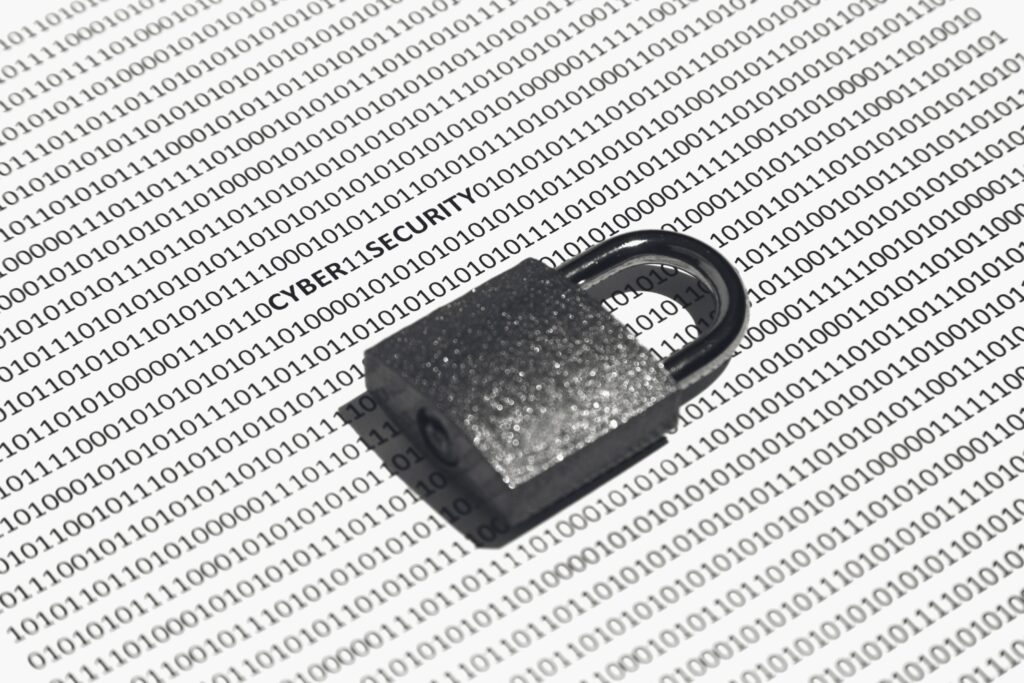In an era where data breaches, government surveillance, and corporate data mining are rampant, secure communication is no longer optional—it’s a necessity. Whether you’re a journalist protecting sources, a business handling sensitive contracts, or simply a privacy-conscious individual, encryption tools are your first line of defense against unauthorized access to your private conversations.

This guide provides an exhaustive breakdown of the most secure encryption tools available today. We’ll examine their security protocols, strengths, weaknesses, and ideal use cases—without relying on overused phrases like “in today’s digital age” or unnecessary filler. Every section is packed with actionable insights, technical details, and real-world applications to help you make informed decisions about your digital privacy.
Why Encryption Is Essential for Private Communication
Encryption is the process of converting plaintext data into ciphertext—scrambled information that can only be decoded by someone with the correct decryption key. Without encryption, every email, message, or file you send is vulnerable to interception by hackers, internet service providers (ISPs), or government agencies.
Key Threats Encryption Protects Against
- Eavesdropping & Packet Sniffing
- Unencrypted data sent over public Wi-Fi, cellular networks, or even home internet connections can be intercepted.
- Hackers use tools like Wireshark to capture unsecured data packets.
- Mass Surveillance & Data Retention
- Governments and corporations collect vast amounts of unencrypted communications.
- Metadata (who you talk to, when, and for how long) is often stored indefinitely.
- Man-in-the-Middle (MITM) Attacks
- Attackers secretly intercept and relay messages between two parties who believe they’re communicating directly.
- Common in phishing attacks and compromised networks.
- Cloud Storage & Third-Party Access
- Many cloud providers scan and analyze unencrypted files (e.g., Google Drive, Dropbox).
- Encryption ensures only you—not the service provider—can access your data.
Types of Encryption You Should Know
- End-to-End Encryption (E2EE) – Only the sender and recipient can read messages. Not even the service provider can decrypt them.
- Transport Layer Security (TLS) – Used in HTTPS websites to secure data in transit.
- Zero-Knowledge Encryption – The service provider has no access to your encryption keys (e.g., ProtonMail, Tresorit).
Now, let’s dive into the best encryption tools available today.
1. Signal: The Most Secure Messaging App
Why Signal Is the Gold Standard
Signal is widely regarded as the most secure messaging app, endorsed by cybersecurity experts, privacy advocates, and even Edward Snowden. It uses the Signal Protocol, an open-source encryption standard also adopted by WhatsApp (though with key differences).
Security Features of Signal
✔ End-to-End Encryption (E2EE) by Default
- Every call, message, and video chat is encrypted.
- No option to disable encryption (unlike some apps).
✔ Perfect Forward Secrecy (PFS)
- Encryption keys change with every session.
- Even if one key is compromised, past messages remain secure.
✔ Disappearing Messages
- Set timers for messages to auto-delete (useful for sensitive conversations).
✔ Minimal Metadata Collection
- Unlike WhatsApp, Signal does not store message logs, contact lists, or location data.
✔ Independent Security Audits
- Open-source code allows experts to verify no backdoors exist.
Who Should Use Signal?
✅ Journalists & Whistleblowers – Secure communication with sources.
✅ Activists & Protesters – Avoid government surveillance.
✅ Businesses Handling Sensitive Data – Protect trade secrets and client information.
Limitations of Signal
❌ Requires a Phone Number – Not ideal for complete anonymity.
❌ Smaller User Base – Less convenient than WhatsApp for mainstream users.
2. ProtonMail: Secure Email Encryption
Why ProtonMail Stands Out
Most email providers (Gmail, Outlook, Yahoo) scan your emails for ads and data mining. ProtonMail, based in Switzerland, offers zero-access encryption, meaning even ProtonMail’s servers cannot read your emails.
Key Security Features
✔ End-to-End Encrypted Emails
- Only the sender and recipient can decrypt messages.
- Works even if the recipient doesn’t use ProtonMail (via password-protected emails).
✔ Self-Destructing Emails
- Set an expiration time for sensitive messages.
✔ No IP Logging
- Unlike Gmail, ProtonMail does not track your IP address.
✔ Swiss Privacy Laws
- Switzerland has strong data protection laws, shielding user data from foreign governments.
Who Should Use ProtonMail?
✅ Businesses Handling Confidential Data – Secure client communications.
✅ Journalists & Researchers – Protect sources from exposure.
✅ Privacy-Conscious Individuals – Avoid email scanning by Big Tech.
Limitations
❌ Limited Free Storage (500MB) – Paid plans required for heavy usage.
❌ Slower Search Functionality – Due to encryption, searching emails is less efficient than in Gmail.
3. VeraCrypt: Military-Grade File Encryption
Why VeraCrypt Is the Best for Encrypting Files
VeraCrypt is the successor to TrueCrypt (discontinued in 2014) and is widely used by security professionals to encrypt hard drives, USB sticks, and cloud storage.
How VeraCrypt Works
✔ On-the-Fly Encryption
- Files are encrypted and decrypted automatically when accessed.
✔ Hidden Volumes (Plausible Deniability)
- Create a decoy password to hide sensitive data if forced to reveal access.
✔ Supports Multiple Encryption Algorithms
- AES, Serpent, Twofish, and cascaded combinations.
✔ Cross-Platform Compatibility
- Works on Windows, macOS, and Linux.
Who Should Use VeraCrypt?
✅ Whistleblowers & Investigative Journalists – Securely store leaked documents.
✅ Businesses with Sensitive Data – Encrypt financial records and legal documents.
✅ Travelers Carrying Sensitive Data – Protect files if a laptop is confiscated.
Limitations
❌ Steeper Learning Curve – Not as user-friendly as built-in encryption tools like BitLocker.
❌ No Mobile Version – Desktop-only (for now).
4. Wire: Secure Collaboration for Teams
Why Wire Is Ideal for Businesses
Wire combines messaging, voice calls, video conferencing, and file sharing—all with end-to-end encryption.
Key Advantages Over Slack & Microsoft Teams
✔ No Phone Number Required – Better for anonymity.
✔ Screen Sharing with Encryption – Rare in secure apps.
✔ GDPR & HIPAA Compliant – Ideal for EU and healthcare businesses.
✔ Open-Source Code – Independently audited for security.
Who Should Use Wire?
✅ Law Firms & Legal Teams – Secure client-attorney discussions.
✅ Healthcare Providers – HIPAA-compliant patient communications.
✅ Remote Companies Handling IP – Protect trade secrets.
Limitations
❌ Smaller Ecosystem – Fewer integrations than Slack.
❌ Paid for Full Features – Free version has limitations.
5. Tor Browser: Anonymous Web Access
Why Tor Is Critical for Privacy
While not a direct communication tool, Tor enables secure access to messaging apps in censored regions and prevents tracking.
How Tor Protects You
✔ Onion Routing – Traffic passes through multiple encrypted nodes.
✔ Blocks Fingerprinting – Defeats browser tracking techniques.
✔ Access to .onion Sites – Hidden services like SecureDrop (for whistleblowing).
When Should You Use Tor?
✅ Journalists in Authoritarian Regimes – Bypass government censorship.
✅ Researchers Investigating Sensitive Topics – Avoid surveillance.
✅ Everyday Privacy-Conscious Users – Prevent ISP tracking.
Limitations
❌ Slower Speeds – Due to multi-layered encryption.
❌ Some Sites Block Tor – Captchas and IP bans are common.
FAQs About Encryption Tools
1. Is WhatsApp Safe to Use?
WhatsApp uses Signal’s encryption but collects metadata (contacts, group info, usage patterns). For high-risk users, Signal is safer.
2. Can Encryption Be Broken?
Properly implemented E2EE (like Signal’s) is virtually unbreakable with current technology. Weak passwords or compromised devices are bigger risks.
3. Are Free Encryption Tools Trustworthy?
Yes—Signal, ProtonMail, and Tor are free, open-source, and independently audited.
4. What’s the Most Secure Email Provider?
ProtonMail and Tutanota are the top choices for encrypted email.
5. How Do I Encrypt My Hard Drive?
Use VeraCrypt (Windows/macOS/Linux) or BitLocker (Windows Pro).
Final Recommendations: Choosing the Right Tool
| Use Case | Best Tool | Why? |
|---|---|---|
| Private Messaging | Signal | No metadata collection, open-source |
| Secure Email | ProtonMail | Zero-access encryption, Swiss-based |
| File Encryption | VeraCrypt | Military-grade, hidden volumes |
| Business Collaboration | Wire | E2EE calls, GDPR compliant |
| Anonymous Browsing | Tor Browser | IP masking, anti-tracking |
Action Steps
- Switch from WhatsApp to Signal for truly private messaging.
- Use ProtonMail for sensitive emails.
- Encrypt files with VeraCrypt before uploading to cloud storage.
- Consider Tor if you need anonymity.
Encryption isn’t just for tech experts—it’s a necessity for anyone who values privacy. Start securing your communications today.

